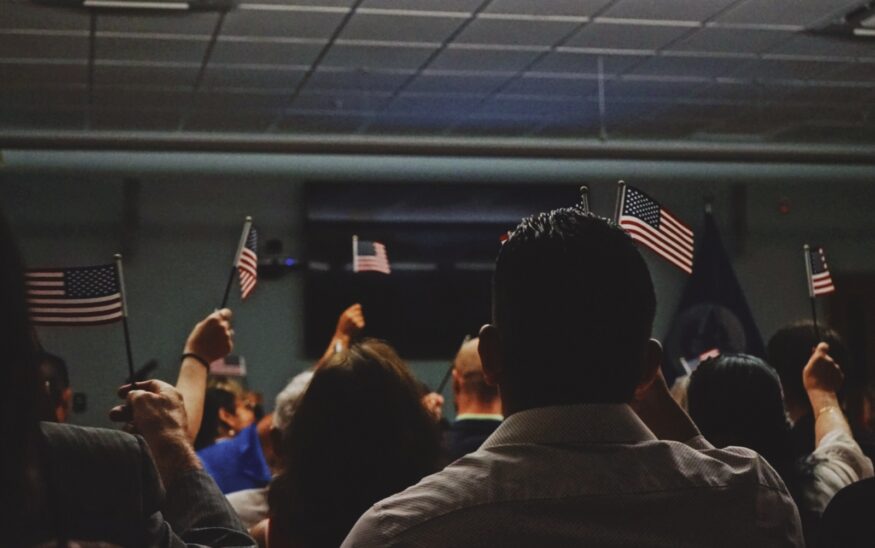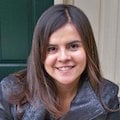Colorado Needs its Immigrant Innovators
One perspective on how immigrants support the economy, to be delivered at Denver Startup Week
Maria Navas-Moreno //September 24, 2018//


Colorado Needs its Immigrant Innovators
One perspective on how immigrants support the economy, to be delivered at Denver Startup Week
Maria Navas-Moreno //September 24, 2018//

Immigrants are an essential segment of our country and state. They shape our communities and support our economy. In Colorado, there are more than 36,000 immigrant entrepreneurs and their businesses generate approximately $1.1 billion in income.
Immigrants of various skill levels strengthen the economy and create jobs. However, our current immigration system creates a barrier that often prevents innovators from coming here and spurring economic growth.
I can speak to these challenges from personal experience.
I am an immigrant. My journey to the United States has been both rewarding and tumultuous. Like many other students from across the globe, I came here to pursue higher education. About a decade ago, I earned by Ph.D. in Physics from the University of Utah and have been fortunate to go on and build a career as a scientist. Using my degree, I developed microscopic tools that aim to improve medical diagnosis and to better understand the biology of cancer, so we can design better treatments.
The tools I use for research are powerful and have a broad range of applications, so I co-founded a company called Lever Photonics so other people and companies can gain access to them. Unfortunately, the immigration system has created roadblocks that prevent me from making progress in this important field of work.
With my expertise in physics, finding a job was not really a problem for me.
The issues is that work visas are a lottery, given only once a year. No matter how qualified or skilled you are, you might never get one. The visa I eventually acquired – an H-4 visa – did not allow me to work.
WHY COLORADO IS A GREAT PLACE FOR INTERNATIONAL ENTREPRENEURSHIP
It was incredibly challenging. I am an independent, driven person who likes to do meaningful work – and I wasn't allowed to. I couldn't contribute to my family's income, to the economy or the advancement of technology.
I was thrilled when the Obama Administration extended work authorization to H-4 visa holders. It took me a year to get approval. If it would have taken longer, I would have likely left the country.
Roughly 80 percent of H-4 visa holders are educated women. Like me, many hold in-demand degress from American universities. These people could actively contribute to the economy and the advancement of science and technology – but, for many years, could not.
IMMIGRANTS AND REFUGEE COMMUNITY STOKE AURORA'S ECONOMIC FIRE
We should take all steps necessary to improve the legal immigration and maintain the U.S.'s ability to recruit and retain the best and brightest – the talent necessary to innovate and grow. We need to protect immigration channels and let our representatives know we don't support cuts to legal immigration.
I am proud to be part of a panel along with other Colorado business leaders, community leaders and entrepreneurs who will be discussing immigration issues and how they impact the Colorado business community. This panel discussion is part of Denver Startup Week, taking place September 26 at Shift Workspaces at 1001 Bannock St.
We need to continue the dialogue that will compel our legislators to update our outdated immigration system and pass legislation that will benefit our economy and communities across the country.
 Dr. Maria Navas-Moreno is a physicist who is passionate about understanding and improving how things work, whether in science or in day-to-day life. She obtained a bachelors degress in physics, a B.S. in mechanical engineering and master's degree in biomedical sciences engineering from the Universidad de los Andes, the top university in Colombia. She also has a Ph.D. in physics from the University of Utah. Navas-MOreno has more than 10 yers of experiecne developing imaging tools and sensing methods for applications in medicine and biological research. After completing her P.h.D., she worked as a scientist at the University of Utah and later at the University of California at Davis. She is also deeply involved in entrepreneurship community outreach because she strongly believe entrepreneurship is the highway for research and technology to reach people's lives.
Dr. Maria Navas-Moreno is a physicist who is passionate about understanding and improving how things work, whether in science or in day-to-day life. She obtained a bachelors degress in physics, a B.S. in mechanical engineering and master's degree in biomedical sciences engineering from the Universidad de los Andes, the top university in Colombia. She also has a Ph.D. in physics from the University of Utah. Navas-MOreno has more than 10 yers of experiecne developing imaging tools and sensing methods for applications in medicine and biological research. After completing her P.h.D., she worked as a scientist at the University of Utah and later at the University of California at Davis. She is also deeply involved in entrepreneurship community outreach because she strongly believe entrepreneurship is the highway for research and technology to reach people's lives.


























